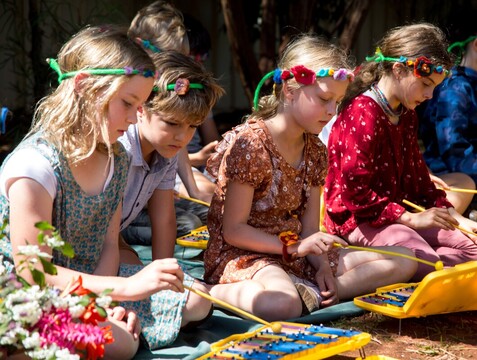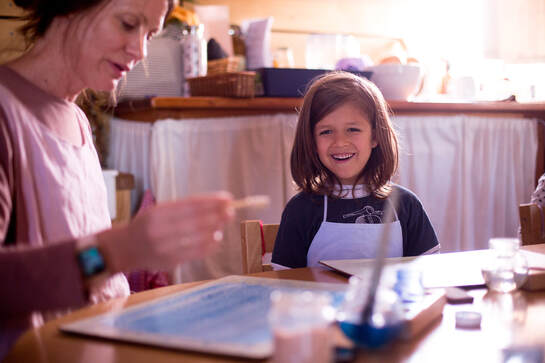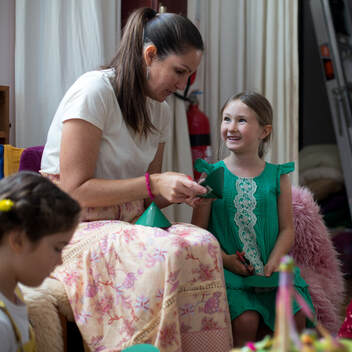|
The ethos of the school reflects its educational philosophy which has its roots in Steiner education, as developed by Rudolf Steiner based on his philosophy of the human being in relationship to the earth and the universe.
The school’s educational philosophy values the importance of childhood in the development of self, and employs a curriculum unique to Steiner schools, which provides students with learning experiences at a time when they are most ready to enjoy, appreciate, understand and benefit from them. Human development and human relationships are at the centre of this, incorporating values of trust, respect, responsibility and care for each other and our surroundings. |
A co-operative attitude towards learning is cultivated where students do not view each other as rivals, but as colleagues, and are encouraged to be happy for one another’s success.
We surround our students with natural materials and nature, in order to foster a relationship with the natural world. This instils an appreciation of beauty in nature, a feeling of connection with the world, and a will to protect and nourish our environment. |
Steiner Education
|
Steiner education is growing in popularity both locally and globally. In Australia, 17 new Steiner schools have opened in the last decade with more in preparation. Critical and creative thinking, social skills and problem solving are high educational priorities from Gonski 2.0 – all signature outcomes of Steiner education for over 100 years.
Steiner education is modelled on the work of Rudolf Steiner, based on the development of the child in every aspect - physically, intellectually, socially and emotionally. Steiner education helps to connect children to their natural environment, cultivates reverence and respect for one another and the world around us, integrates the arts in all aspects of the curriculum, brings liveliness to learning and appreciates the special qualities of childhood. |
"Our highest endeavour must be to develop free human beings who are able of themselves to impart purpose and direction to their lives. The need for imagination, a sense of truth and a feeling of responsibility - these three forces are the very nerve of education." |
|
If you have looked into Steiner Education recently, you may have come across the emerging links between Steiner Education and modern neuroscience. Over the past 20 years, increasing evidence from a large body of neuroscience research supports Steiner’s theories around education and child development.
At the 2012 National Education Forum, Mark McCrindle who researches global educational trends stated that "lifelong learning is critical to sustain future workers through a highly varied career structure and to work in jobs that do not even exist yet". Steiner Education is ideally placed to provide this connection to lifelong learning and creativity. |
To help you source much more information about Steiner Education and early childhood development, may we suggest a visit to Steiner Education Australia and Waldorf 100 – The Films.
Waldorf 100 - The FilmsLearn to Change the World
Part 1 & Part 2 |
|



